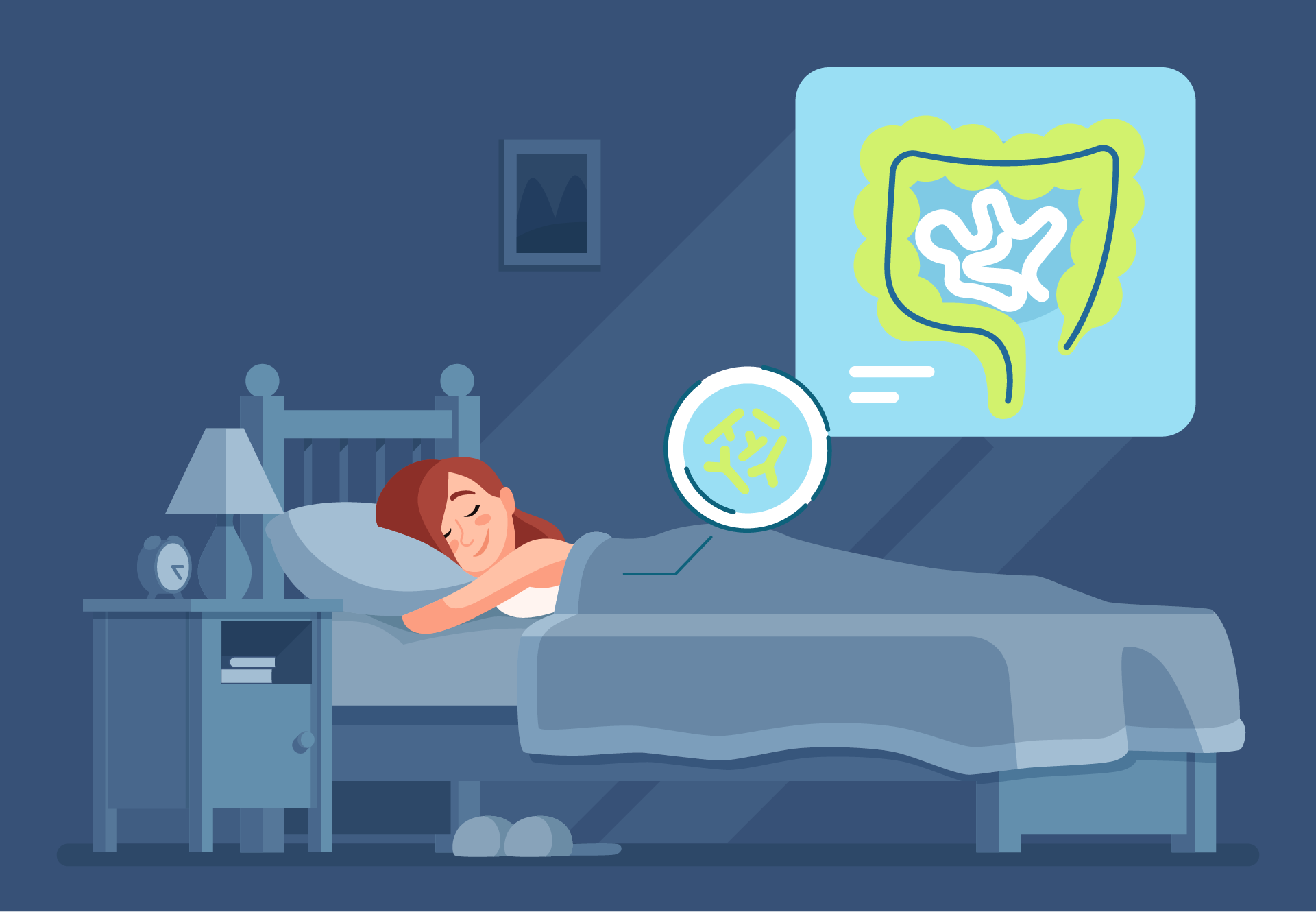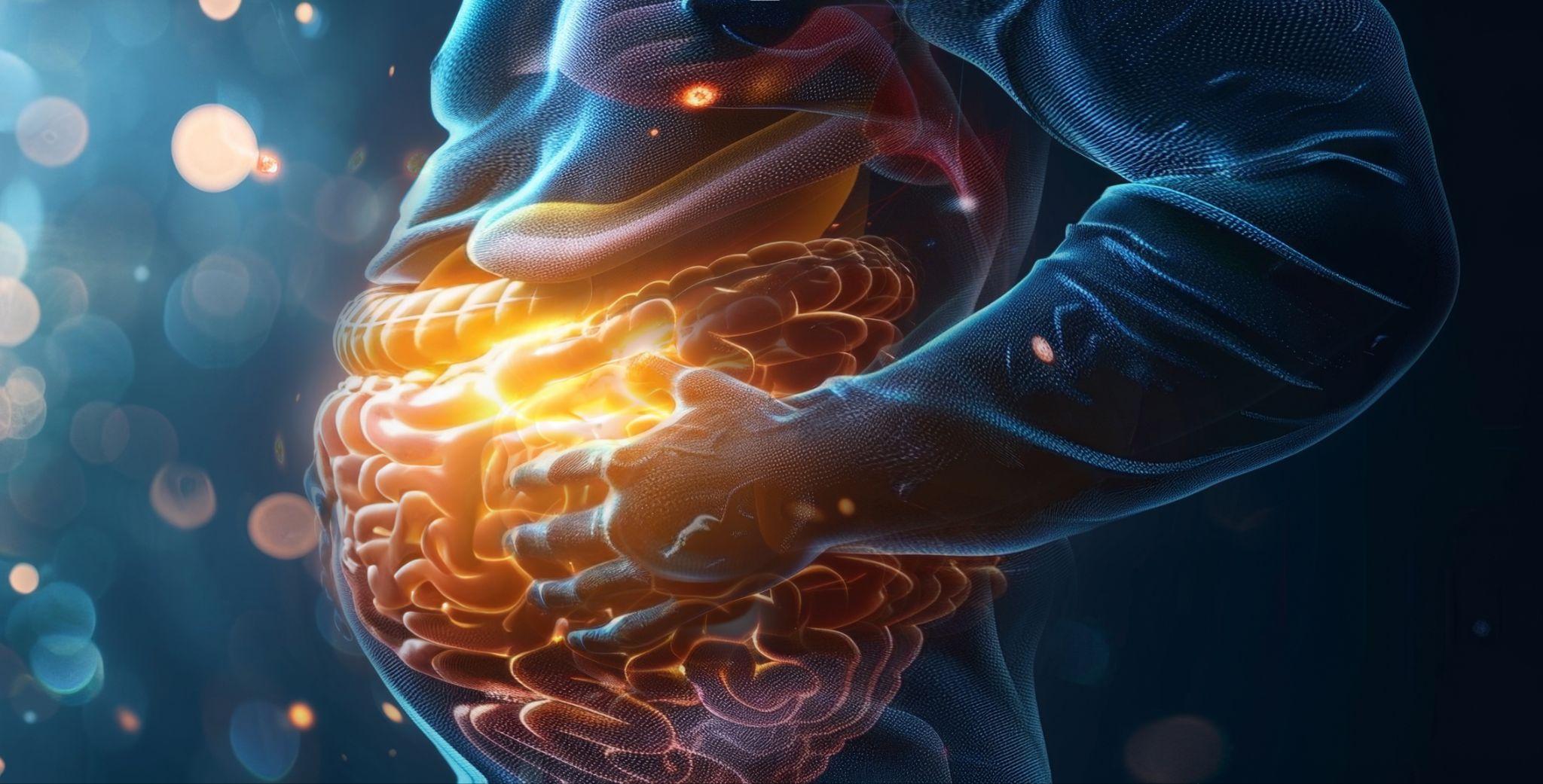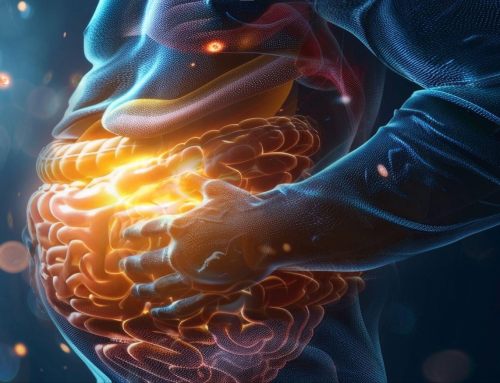Enhancing Sleep with Gut Microbiome Manipulation
Functional Medicine providers are well aware of the complex and interconnected nature of the human body. Sleep quality is a fundamental aspect of human health and well-being, and disruptions in sleep patterns can lead to myriad health issues (1). Recent advances in research have revealed an exciting and promising avenue to enhance sleep quality and overall health through the therapeutic manipulation of the gut microbiome (GM) (2). The GM refers to the vast community of microorganisms residing symbiotically in our gastrointestinal tract (GI), including bacteria, viruses, and fungi. It plays a critical role in digestion, nutrient absorption, immune system modulation, and the production of essential functional metabolites (3). Emerging evidence suggests that this intricate ecosystem also significantly influences sleep patterns and overall sleep quality via the bidirectional communication pathways of the gut-immune-brain axis (GIBA) (4). For medical professionals, understanding and implementing therapeutic interventions for GM modulation to enhance sleep is crucial for providing comprehensive patient care.
First Steps: Remove the Stressors
The human body’s central circadian clock is regulated by metabolites produced by intestinal microbes. Dysbiosis and the subsequent loss of microbial species diversity are primary contributors to dysfunctional sleep physiology (5). It is evident to Functional Medicine practitioners that GM modulation for improving sleep requires a concerted effort to remove the dietary and lifestyle stressors that contribute to diminished gut function, dysbiosis, and loss of microbial diversity.
Reducing Stress: a significant GM disruptor – Chronic stress can negatively impact the gut microbiome, encouraging pathogenic microorganisms to thrive while quantities of beneficial species are reduced (6). A comprehensive review of animal and human model studies on the relationship between stress and GM composition describes the challenges of qualifying and quantifying stress’s impact on the human gut. Early life stress involving adverse childhood experiences (ACEs), in utero stress, and perceived psychosocial stress have all been associated with dysbiosis, each with unique impacts on gut microbiome diversity and GIBA signaling (6). Each individual’s gut microbiome is unique, and personalized approaches based on microbiome analysis may yield additional information on specific therapeutic targets of GM modulation to generate more effective results in restoring microbial diversity. Encouraging stress-reducing practices like mindfulness, meditation, and regular physical activity can support gut health for improved GIBA pathway communication, leading to better sleep.
Limiting Antibiotic Use – Antibiotics are sometimes necessary for treating active infections, though antibiotic overuse can disrupt the GM’s composition, diversity, and metabolite gene expression (7). Patient education regarding the impacts of topical antibacterial agents is indicated, given the association between the health of the skin microbiome and that of the gut (8). Other non-antibiotic medications, including proton-pump inhibitors, metformin, statins, and non-steroidal anti-inflammatory drugs, have been shown to alter human intestinal microbiota (9). When seeking root-cause issues related to dysbiosis, a thorough review of the patient’s complete prescription and over-the-counter medication use is warranted. Functional Medicine providers are encouraged to be prudent with antibiotic treatment (7) and, when antibiotics are necessary, consider probiotic supplementation concurrent with antibiotic treatment.
Eliminating Dietary Stressors – No attempt to modulate the GM will be successful if a patient continues to consume a Western Diet comprised of mainly poor-quality, high-fat, low-fiber processed foods (10). Feeding habits of constant snacking, overeating, and eating under sympathetic nervous system dominance all contribute to a prolonged postprandial state that disrupts digestion, generates oxidative stress, and fuels pathogenic microbes. The Western Diet and associated eating habits, coupled with a sedentary lifestyle and excessive alcohol consumption, set the stage for increased intestinal permeability, the development of GI inflammation, and dysbiosis (10). Encouraging a diet rich in fiber from vegetables, fruits, and whole grains, can promote a diverse and healthy GM (10), the first critical step to improving sleep quality. A Mediterranean-style diet inclusive of balanced omega-3 and omega-6 fatty acids, highly-unsaturated and polyunsaturated fatty acids, fish oil, olive oil, plant-based fibers and polyphenols, and a comprehensive complement of vitamins and minerals has antioxidant and anti-inflammatory properties (11).
Patients should be encouraged to exercise regularly, employ stress reduction techniques, and practice improved eating habits and sleep hygiene routines to reduce the oxidative stress that promotes dysbiosis. Preventive lifestyle modifications should be personalized to each patient while implementing a Mediterranean-style diet as an essential first step in modulating GM composition and diversity (11).
Unlocking Key Mechanisms Impacting Sleep
Circadian Rhythm Regulation is a Two-Way Street – Research evidence shows rhythmic fluctuations in the composition and function of the microbiota expose the intestinal epithelium to different quantities of bacterial species and microbe-derived metabolites throughout the day. These GM fluctuations impact the host’s central circadian clock through variations in GIBA signaling that alter intestinal gene expression associated with circadian rhythm. Bacterioidetes and Firmicutes show significant changes in population quantities between day and night related to host circadian rhythm, diet, feeding times, and gender (12). Dysbiosis disrupts the bi-directional signaling of gene expression required for maintaining appropriate circadian rhythms for both the host and GM (12).
Melatonin Production – Melatonin, called the “sleep hormone,” regulates the body’s circadian rhythm and sleep-wake cycle. Emerging evidence suggests that gut microbes in Firmicutes, Bifidobacterium, and Lactobacillus genera influence the production of melatonin in the GI using microbial-derived short-chain fatty acids (SCFAs) and enzymes to convert tryptophan-rich serotonin to melatonin. Extra-pineal production of melatonin in the gut is over 400 times the quantity produced in the brain (13).
Neurotransmitter Functionality – The gut microbiome plays a pivotal role in synthesizing and regulating two primary sleep/wake cycle neurotransmitters, serotonin and gamma-aminobutyric acid (GABA) (14). These gut microbe-derived neurotransmitters are instrumental in maintaining mood, relaxation, and sleep patterns via neuroendocrine and neuroimmune signaling pathways. An imbalance in their production due to dysbiosis can lead to anxiety, other mood disorders, and sleep disturbances.
- Serotonin, known for its role in mood regulation, promotes restful sleep by inhibiting the pro-inflammatory cytokines interleukin-6 (IL-6) and tumor necrosis factor-alpha (TNF-ɑ), suppressing a stimulatory central nervous system (CNS) response. A significant portion of serotonin is synthesized by beneficial gut microbes, including specific strains of Candida, Streptococcus, Escherichia, Enterococcus, and Pseudomonas, improving sleep-wake cycles and overall sleep quality (14).
- Gamma-Aminobutyric-Acid (GABA), the primary inhibitory neurotransmitter in the brain and understood to cross the blood-brain barrier (BBB) readily, promotes sleep maintenance through inhibition of stimulatory immune responses and suppression of stress-related anxiety and depression sleep awakening signals in the brain. The Lactobacillus, Bifidobacterium, and Streptococcus bacterial families produce GABA in the gut, with Lactobacillus brevis and Bifidobacterium dentium the most efficient GABA-producing strains in the human GM (14).
Short-chain Fatty Acid (SCFA) Production: Beneficial gut bacteria ferment non-digestible dietary fibers from complex carbohydrates to produce SCFAs acetate, butyrate, and propionate. These molecules have far-reaching effects on our health, including intestinal epithelial integrity, energy production, immune modulation, and sleep regulation. SCFAs like butyrate influence the brain by crossing the blood-brain barrier and modulating GABA receptors, promoting relaxation and improved sleep (8).
Practical Strategies for GM Manipulation:
1. Prebiotics to Fuel the “Good Guys”
Prebiotics are “a substrate that is selectively utilized by host microorganisms, conferring a health benefit” (15). More simply stated, prebiotics serve as food to be metabolized by beneficial intestinal gut microbes with the health benefit of modulating the GM composition and diversity 16). Non-digestible fibers from dietary carbohydrates, plant-based polyphenols, and polyunsaturated fatty acids (PUFAs) can all meet the prebiotic criteria (15). Consuming a well-balanced Mediterranean-style diet inclusive of at least 28g of fiber daily provides sufficient quantities of varied prebiotic substrates for a balanced microbiome (11). A randomized control trial dubbed the “Gut Feelings” trial involving adult subjects with moderate psychological stress showed intervention with a high-prebiotic diet improved self-reported sleep quality compared to placebo (17).
Dietary fiber and prebiotic supplementation are indicated for use with dysbiosis-associated sleep disturbance to fuel butyrate-producing bacteria Faecalibacterium prausnitzii, Roseburia, and select strains of Bifidobacterium and Lactobacillus species. Ingestion of prebiotic fructooligosaccharides (FOS), galactooligosaccharides (GOS), inulin, and pectin, and polyphenols found in green tea, cocoa, berries, whole grains, and vegetables, all show evidence of clinically significant increases in beneficial gut microbes and especially Bifidobacterium (15). Dietary FOS is a component of onion, chicory, garlic, asparagus, banana, and artichoke (18). GOS is found in legumes, including various beans, lentils, and chickpeas (19), and Bifidobacterium primarily metabolizes itin the human intestinal tract (15). Some dysbiotic patients tolerate both dietary and supplemental FOS or GOS without complaint. However, FOS and GOS may produce unwanted flatulence in patients with overgrowth of Clostridium bacteria indicated via stool testing, and providers should encourage FOS and GOS avoidance if symptoms of gas and bloating become intolerable (15).
2. Targeted Probiotics for Better ZZZs
Probiotics are “live microorganisms that, when administered in adequate amounts, confer a health benefit on the host” (20). Recent research has shed light on the potential impact on sleep regulation by modulating gut microbiota using specific probiotic strains.
Human trial researchers have observed supplementing with strain-specific probiotics may help reduce sleep disturbances, shorten sleep onset latency, and increase overall sleep duration. Some studies have demonstrated improvements in subjective sleep quality, showing that patients reported feeling more rested and refreshed after taking probiotics regularly. In particular, strains of Lactobacillus and Bifidobacterium have shown promising results indicating improved sleep quality and duration. Researchers in an RCT of adults with subclinical symptoms of insomnia, depression, and anxiety evaluated the efficacy of NVP-1704, a combined probiotic mixing Lactobacillus reuteri NK33 with Bifidobacterium adolescentis NK98, for reducing mood disorder symptoms and improving sleep quality as determined by subject-reported Insomnia Severity Index scores. Compared to control subjects, intervention patients taking NVP-1704 for eight weeks had reduced serum IL-6 levels, increased fecal ratios of beneficial Bifidobacteriaceae and Lactobacillacea to pathogenic Enterobacteriaceae, and improved sleep-onset latency and overall sleep quality (21).
Lactobacillus plantarum PS128 (PS128) is another promising single-strain probiotic for mood and sleep improvement. Forty adult subjects with self-reported insomnia were randomized to 30 days of intervention with PS128 in the evening or a placebo control group. Measures of anxiety, depression, and sleep quality symptoms were gathered, and polysomnography recordings were collected at the midpoint and end of the trial. Study results showed PS128 subjects had decreased depression and fatigue scores, with decreased cortical excitation and reduced awakenings during deep sleep, improving overall sleep quality (22).
Intervention with Lactobacillus plantarum JYLP-326 is effective in reducing acute signs of insomnia and anxiety/depression from dysbiosis associated with exam anxiety in college students consuming a JYLP-326 supplement twice daily for three weeks (23). Results of fecal analysis post-intervention with JLYP-326 suggest that this unique Lactobacillus plantarum isolate found in fermented rice acts relatively quickly to restore stress-induced microbial balance (23).
An exciting animal model study orally applied Lactobacillus fermentum PS150 to mice under pentobarbital-induced sleep, mimicking the frequent human patient scenario of using antihistamines for sleep improvement. Animals treated solely with the antihistamine diphenhydramine showed only increased sleep duration. At the same time, subjects treated with PS-150 exhibited decreased sleep latency, increased sleep duration, and attenuated caffeine-induced sleep disturbances via upregulation of adenosine receptors controlling histamine responses (24).
3. Emerging Research Using Synbiotics
Synbiotics refer to supplemental formulas combining prebiotics and probiotics to target gut dysbiosis and restore microbial homeostasis. SIM01 is a novel synbiotic formula combining three unique strains of Bifidobacterium with the prebiotics GOS, xylooligosaccharide, and resistant starch from dextrin (25). Researchers in a recent double-blind, randomized placebo-control trial used SIM01 intervention to establish a correlation between synbiotic use and reduced risk of adverse health outcomes in at-risk subjects during the coronavirus 2019 (COVID-19) pandemic. Subjects aged >65 and diagnosed with diabetes mellitus (DM) were qualified as at-risk when receiving primary COVID-19 vaccination. Intervention subjects received daily SIM01 supplementation for three months and completed periodic mood and sleep quality assessments. Fecal analysis recorded microbial diversity at the beginning and end of the synbiotic intervention. The rate of adverse health outcomes was significantly lower in SIM01 subjects compared to placebo after one month and three months, and sleep quality was 41% improved in SIM01 recipients after three months of intervention. Increases in butyrate-producing bacteria, including beneficial Bifidobacterium, were evidenced in SIM01 user fecal samples, suggesting the synbiotic positively impacts GM modulation (26).
4. Mind Over Microbial Matter
Given the bi-directional communication pathways of the GIBA, is it possible for consistent mindfulness practice to alter gut microbial populations? Elderly patients diagnosed with mild cognitive impairment were led by an instructor in a Mindful Awareness Program (MAP) using present-moment attention activities weekly for three months, then monthly for six months. Fecal and serum samples were collected at baseline, three-month, and nine-month intervals while participating in MAP and values compared to normal aging control subjects. Cognitive improvements in memory and recall were reported at the end of MAP intervention, and pro-inflammatory cytokines were decreased from baseline. Most notably, alterations in the GM of MAP subjects showed a direct correlation between memory-related cognitive functions and increased bacterial concentrations of Ruminococcus, Parabacteriodes, and Enterobacteriaceae (27). These findings suggest mindfulness activities can positively impact the balance of intestinal microbes through brain-led signaling pathways, potentially improving sleep patterns simply with intentional thought.
GM modulation represents a novel treatment path to improving patient sleep quality. Despite promising research findings, it’s essential to approach the clinical application of therapies for gut microbiota manipulation with a personalized approach for each patient. For example, individual responses to probiotics can vary, and only some patients may experience the same benefits given the unique bio-individual diversity of the intestinal microbiome.
The research field on this topic is relatively new, and longitudinal studies are needed to determine the most effective prebiotic substrates, probiotic strains, dosages, and treatment durations. As Functional Medicine providers, we must keep an eye on the evolving research in this area and stay informed about the latest findings. When considering interventions for sleep issues, evaluating overall health status, medical history, and potential interactions with other medications is crucial.
~
Help your patients get to the root cause of their sleep disorders with a deeper investigation into the connection between sleep physiology and the functional status of the gut-immune-brain network. Join PLMI as we learn from the leading experts on this critical topic during our free, live, virtual webinar on August 29, 2023, from 5-7 pm PST. Registration is FREE and takes just a minute using the following link: The Sleep-Gut-Brain Connection.
Sources:
- Cleveland Clinic, Health Library, Diseases & Conditions, Sleep Disorders [Internet]. Cleveland, Ohio: Cleveland Clinic; 2023 June [cited 2023 July 25]. Available from: https://my.clevelandclinic.org/health/diseases/11429-sleep-disorders
- Sgro M, Kodila ZN, Brady RD, Reichelt AC, Mychaisuk R, Yamakawa GR. Synchronizing our clocks as we age: the influence of the brain-gut-immune axis on the sleep-wake cycle across the lifespan. Sleep. 2022 Mar 14;45(3):zsab268. doi: 10.1093/sleep/zsab268. PMID: 34757429.
- Galland L. The gut microbiome and the brain. J Med Food. 2014 Dec;17(12):1261-72. doi: 10.1089/jmf.2014.7000. PMID: 25402818; PMCID: PMC4259177.
- Foster JA, Baker GB, Dursun SM. The relationship between the gut microbiome-immune system-brain axis and major depressive disorder. Frontiers in Neurology. 2021;12. doi:10.3389/fneur.2021.721126.
- Smith RP, Easson C, Lyle SM, Kapoor R, Donnelly CP, Davidson EJ, Parikh E, Lopez JV, Tartar JL. Gut microbiome diversity is associated with sleep physiology in humans. PLoS One. 2019 Oct 7;14(10):e0222394. doi: 10.1371/journal.pone.0222394. PMID: 31589627; PMCID: PMC6779243.
- Hantsoo L, Zemel BS. Stress gets into the belly: Early life stress and the gut microbiome. Behav Brain Res. 2021 Sep 24;414:113474. doi: 10.1016/j.bbr.2021.113474. Epub 2021 Jul 16. PMID: 34280457; PMCID: PMC8380711.
- Willmann M, Vehreschild MJGT, Biehl LM, Vogel W, Dörfel D, Hamprecht A, Seifert H, Autenrieth IB, Peter S. Distinct impact of antibiotics on the gut microbiome and resistome: a longitudinal multicenter cohort study. BMC Biol. 2019 Sep 18;17(1):76. doi: 10.1186/s12915-019-0692-y. PMID: 31533707; PMCID: PMC6749691.
- de Vos WM, Tilg H, Van Hul M, Cani PD. Gut microbiome and health: mechanistic insights. Gut. 2022 May;71(5):1020-1032. doi: 10.1136/gutjnl-2021-326789. Epub 2022 Feb 1. PMID: 35105664; PMCID: PMC8995832.
- Le Bastard Q, Berthelot L, Soulillou JP, Montassier E. Impact of non-antibiotic drugs on the human intestinal microbiome. Expert Rev Mol Diagn. 2021 Sep;21(9):911-924. doi: 10.1080/14737159.2021.1952075. Epub 2021 Jul 15. PMID: 34225544.
- Malesza IJ, Malesza M, Walkowiak J, Mussin N, Walkowiak D, Aringazina R, Bartkowiak-Wieczorek J, Mądry E. High-Fat, Western-Style Diet, Systemic Inflammation, and Gut Microbiota: A Narrative Review. Cells. 2021 Nov 14;10(11):3164. doi: 10.3390/cells10113164. PMID: 34831387; PMCID: PMC8619527.
- Di Renzo L, Gualtieri P, Romano L, Marrone G, Noce A, Pujia A, Perrone MA, Aiello V, Colica C, De Lorenzo A. Role of Personalized Nutrition in Chronic-Degenerative Diseases. Nutrients. 2019 Jul 24;11(8):1707. doi: 10.3390/nu11081707. PMID: 31344895; PMCID: PMC6723746.
- Li Y, Hao Y, Fan F, Zhang B. The Role of Microbiome in Insomnia, Circadian Disturbance and Depression. Front Psychiatry. 2018 Dec 5;9:669. doi: 10.3389/fpsyt.2018.00669. PMID: 30568608; PMCID: PMC6290721.
- Iesanu MI, Zahiu CDM, Dogaru IA, Chitimus DM, Pircalabioru GG, Voiculescu SE, Isac S, Galos F, Pavel B, O’Mahony SM, Zagrean AM. Melatonin-Microbiome Two-Sided Interaction in Dysbiosis-Associated Conditions. Antioxidants (Basel). 2022 Nov 14;11(11):2244. doi: 10.3390/antiox11112244. PMID: 36421432; PMCID: PMC9686962.
- Sittipo P, Choi J, Lee S, Lee YK. The function of gut microbiota in immune-related neurological disorders: a review. J Neuroinflammation. 2022 Jun 15;19(1):154. doi: 10.1186/s12974-022-02510-1. PMID: 35706008; PMCID: PMC9199126.
- Redondo-Useros N, Nova E, González-Zancada N, Díaz LE, Gómez-Martínez S, Marcos A. Microbiota and Lifestyle: A Special Focus on Diet. Nutrients. 2020 Jun 15;12(6):1776. doi: 10.3390/nu12061776. PMID: 32549225; PMCID: PMC7353459.
- International Scientific Association for Probiotics and Prebiotics, For Scientists, Resources, Prebiotics [Internet]. Citrus Heights, California: ISAPP; July 2023 [cited 2023 July 29]. Available from: https://isappscience.org/for-scientists/resources/prebiotics/
- Freijy TM, Cribb L, Oliver G, Metri NJ, Opie RS, Jacka FN, Hawrelak JA, Rucklidge JJ, Ng CH, Sarris J. Effects of a high-prebiotic diet versus probiotic supplements versus synbiotics on adult mental health: The “Gut Feelings” randomised controlled trial. Front Neurosci. 2023 Feb 6;16:1097278. doi: 10.3389/fnins.2022.1097278. PMID: 36815026; PMCID: PMC9940791.
- Sabater-Molina M, Larqué E, Torrella F, Zamora S. Dietary fructooligosaccharides and potential benefits on health. J Physiol Biochem. 2009 Sep;65(3):315-28. doi: 10.1007/BF03180584. PMID: 20119826.
- Schaafsma A, Mallee L, van den Belt M, Floris E, Kortman G, Veldman J, van den Ende D, Kardinaal A. The Effect of A Whey-Protein and Galacto-Oligosaccharides Based Product on Parameters of Sleep Quality, Stress, and Gut Microbiota in Apparently Healthy Adults with Moderate Sleep Disturbances: A Randomized Controlled Cross-Over Study. Nutrients. 2021 Jun 27;13(7):2204. doi: 10.3390/nu13072204. PMID: 34199006; PMCID: PMC8308271.
- International Scientific Association for Probiotics and Prebiotics, For Scientists, Resources, Probiotics [Internet]. Citrus Heights, California: ISAPP; July 2023 [cited 2023 July 29]. Available from: https://isappscience.org/for-scientists/resources/probiotics/
- Lee HJ, Hong JK, Kim JK, Kim DH, Jang SW, Han SW, Yoon IY. Effects of Probiotic NVP-1704 on Mental Health and Sleep in Healthy Adults: An 8-Week Randomized, Double-Blind, Placebo-Controlled Trial. Nutrients. 2021 Jul 30;13(8):2660. doi: 10.3390/nu13082660. PMID: 34444820; PMCID: PMC8398773.
- Ho YT, Tsai YC, Kuo TBJ, Yang CCH. Effects of Lactobacillus plantarum PS128 on Depressive Symptoms and Sleep Quality in Self-Reported Insomniacs: A Randomized, Double-Blind, Placebo-Controlled Pilot Trial. Nutrients. 2021 Aug 17;13(8):2820. doi: 10.3390/nu13082820. PMID: 34444980; PMCID: PMC8402034.
- Zhu R, Fang Y, Li H, Liu Y, Wei J, Zhang S, Wang L, Fan R, Wang L, Li S, Chen T. Psychobiotic Lactobacillus plantarum JYLP-326 relieves anxiety, depression, and insomnia symptoms in test anxious college via modulating the gut microbiota and its metabolism. Front Immunol. 2023 Mar 23;14:1158137. doi: 10.3389/fimmu.2023.1158137. PMID: 37033942; PMCID: PMC10077425.
- Lin A, Shih CT, Huang CL, Wu CC, Lin CT, Tsai YC. Hypnotic Effects of Lactobacillus fermentumPS150TM on Pentobarbital-Induced Sleep in Mice. Nutrients. 2019 Oct 9;11(10):2409. doi: 10.3390/nu11102409. PMID: 31600934; PMCID: PMC6836230.
- Zhang L, Xu Z, Mak JWY, Chow KM, Lui G, Li TCM, Wong CK, Chan PKS, Ching JYL, Fujiwara Y, Chan FKL, Ng SC. Gut microbiota-derived synbiotic formula (SIM01) as a novel adjuvant therapy for COVID-19: An open-label pilot study. J Gastroenterol Hepatol. 2022 May;37(5):823-831. doi: 10.1111/jgh.15796. Epub 2022 Mar 2. PMID: 35170078; PMCID: PMC9115073.
- Wong MCS, Zhang L, Ching JYL, Mak JWY, Huang J, Wang S, Mok CKP, Wong A, Chiu OL, Fung YT, Cheong PK, Tun HM, Ng SC, Chan FKL. Effects of Gut Microbiome Modulation on Reducing Adverse Health Outcomes among Elderly and Diabetes Patients during the COVID-19 Pandemic: A Randomised, Double-Blind, Placebo-Controlled Trial (IMPACT Study). Nutrients. 2023 Apr 20;15(8):1982. doi: 10.3390/nu15081982. PMID: 37111201; PMCID: PMC10143994.
- Khine WWT, Voong ML, Ng TKS, Feng L, Rane GA, Kumar AP, Kua EH, Mahendran R, Mahendran R, Lee YK. Mental awareness improved mild cognitive impairment and modulated gut microbiome. Aging (Albany NY). 2020 Dec 9;12(23):24371-24393. doi: 10.18632/aging.202277. Epub 2020 Dec 9. PMID: 33318317; PMCID: PMC7762482.












